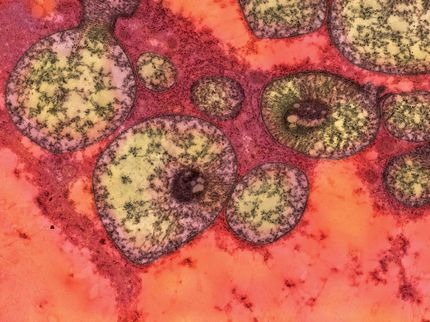MHH Researchers scrutinize EC Regulation
500.000 Euros of funding for an assessment of regulatory impact on Advanced Therapies
Advertisement
A team of researchers from the United Kingdom, Sweden, Austria and Germany, with Professor Dr Martin Hildebrandt, Integrated Research and Treatment Center Transplantation (IFB-Tx), Hannover Medical School MHH) as coordinator, are setting up a platform for Academic GMP Institutions. GMP - Good Manufacturing Practice - defines a body of rules for pharmaceutical production. Within the funded research project funded by the European Commission (EC): “The impact of Regulation (EC) No 1394/2007 on the development of Advanced Therapy Medicinal Products (ATMPs): an academic perspective“, the consequences of the EC Regulation on the academia as a significant source of novel and advanced therapeutics will be explored. „We believe that the Regulation creates a disadvantage for the academic world which, in contrast to the industry, is not being fully taken into account by current EC legislation“, says Hildebrandt. The research team aims at an improvement of the so-called ATMP Regulation – for European citizens. The project took off in September and receives a financial support of € 500.000 for thirty months. Just in time, i.e. prior to the finalization of the EC Regulation in December 2012, the results of the survey in European Academic Institutions will be presented as a targeted report on how the new ATMP regulations are impacting on the academic sector, with concrete suggestions to policy makers.
Advanced Therapy Medicinal Products (ATMPs) are medicinal products for human use, based on gene therapy, somatic cell therapy or tissue engineering. These therapeutics represent the ‘next generation’ of complex medicines for complex diseases. Regulation (EC) No 1394/2007 has been designed to ensure the free movement of these medicines within the European Union (EU), to facilitate their access to the EU market and to foster the competitiveness of European pharmaceutical companies in the field, while guaranteeing the highest level of health protection for patients.
Academic facilities are major contributors to the development of ATMPs. Not only do they have an important function in the translation of pre-clinical academic research into Good Manufacturing Practice, but some products may only reach clinical application by relying exclusively on academic facilities.The project will establish a common platform that brings together academic researchers, clinicians, quality managers, qualified persons, clinical trials coordinators, legal and regulatory advisors and regulators. „We hope to connect research participants and stakeholders and to foster dialogue that will ultimately benefit those in need of advanced therapies, to make a therapeutic advance“.
Other news from the department politics & laws
Most read news
More news from our other portals
See the theme worlds for related content
Topic world Gene therapy
Genetic diseases once considered untreatable are now at the center of innovative therapeutic approaches. Research and development of gene therapies in biotech and pharma aim to directly correct or replace defective or missing genes to combat disease at the molecular level. This revolutionary approach promises not only to treat symptoms, but to eliminate the cause of the disease itself.

Topic world Gene therapy
Genetic diseases once considered untreatable are now at the center of innovative therapeutic approaches. Research and development of gene therapies in biotech and pharma aim to directly correct or replace defective or missing genes to combat disease at the molecular level. This revolutionary approach promises not only to treat symptoms, but to eliminate the cause of the disease itself.





















































